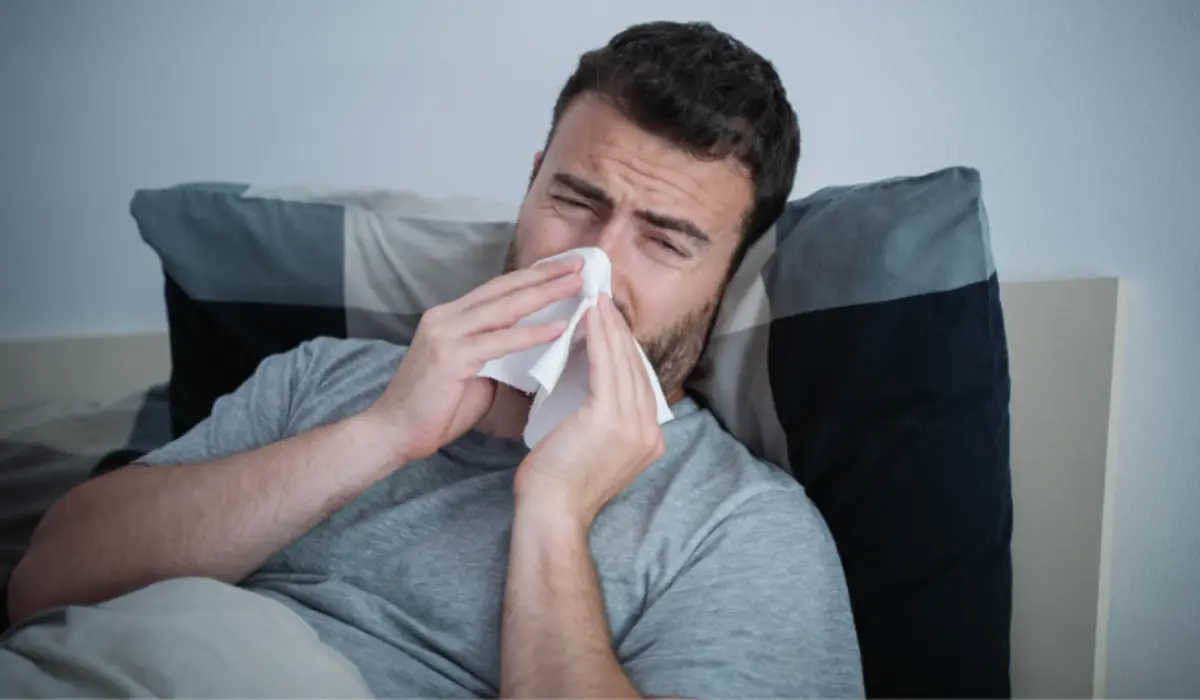In the everyday lives of millions, allergies pose a constant challenge, requiring individuals to manage symptoms through medications and lifestyle tweaks. The dream of a permanent cure for allergies has intrigued researchers for years. While a complete cure is still on the horizon, recent discoveries offer a beacon of hope for more effective and lasting solutions. This article takes you on a journey through the current state of allergy research, potential breakthroughs, and the road we’re traveling toward a definitive cure.
Understanding Allergies

Allergies can range from being a seasonal nuisance to a lifelong condition, depending on the type and severity. While there is no permanent cure for all allergies, there are several effective treatment options that can provide long-term relief of symptoms for many people.
Pollen, dust mites, pet dander, certain foods, and insect stings—these seemingly harmless substances can trigger an immune system rebellion. Sneezing, itching, and congestion are the body’s way of responding. It’s a battle within our own defenses.
While we don’t have the ability to completely reset the immune system to stop reacting to allergens, allergy treatments aim to reduce sensitivity and minimize symptoms over time. The most effective options are:
💠Traditional Allergy Management
Back in the day, managing allergies meant reaching for antihistamines, decongestants, and, in severe cases, the life-saving epinephrine shot. Some opted for strategies like avoiding allergens or undergoing immunotherapy, the famous allergy shots. They worked to desensitize the immune system but didn’t promise a complete cure.
💠Advancements in Immunotherapy
Try it an innovative therapy that involves not only fighting against the symptoms but also modifying your immune system, allowing it to react differently to any allergen. This is the hope of immunotherapy, or more precisely, SLIT and SCIT. These are allergy whisperers; they encourage your body to make peace with its potential enemies. However, there is no such thing as one-shot magic in this regard.
💠Gene Therapy And CRISPR
Enter the superhero of medical research: CRISPR. Scientists are exploring gene therapy, the art of tinkering with the genes that trigger allergic reactions. Think of it as reprogramming the body’s allergy response. It’s like fixing a glitch in the system. Exciting, right? But, it’s still in the experimental stage, and the ethical debates are buzzing.
In theory, gene therapy aims at editing or replacing those genes that produce allergy symptoms. It would change the entire approach to dealing with allergies. Nevertheless, prior to embarking on this noble course, it is necessary to first be cautious of the moral implications as well as the possible repercussions in the long run.
💠Microbiome And Allergies
Now, imagine a bustling community of microorganisms living in and on your body the microbiome. Recent studies suggest they might hold the key to understanding allergies. There’s a delicate balance, and when it’s disturbed, allergies might come knocking. Researchers are testing things like probiotics (the friendly bacteria) and fecal microbiota transplantation (FMT), where healthy gut microbes are transferred from a donor to a recipient. It’s like giving your body a new set of allies to fight allergies.
💠Challenges And Ethical Considerations
Hold on, though. Every superhero has its challenges. Gene therapy, especially, sparks concerns about unforeseen consequences. It’s like venturing into uncharted territory. Safety and effectiveness are non-negotiable before we can embrace these treatments widely. Striking the right balance between innovation and caution is key.
Conclusion
A cure for allergies, the kind that’s permanent, is still a destination on the horizon. Yet, the journey is marked by promising milestones. From the evolving world of immunotherapy to the cutting-edge realm of gene therapy and the intricate dance with the microbiome, scientists are untangling the mysteries. The optimism is contagious, but it’s crucial to acknowledge the challenges and ethical considerations.
The canvas of allergy research is dynamic, with new strokes of discovery appearing regularly. As we uncover the secrets of the immune system, genetics, and microbiome, the dream of a world free from the shackles of allergies inches closer.
For now, individuals with allergies find solace in the evolving landscape of research and the pursuit of better treatments. The quest for a permanent allergy cure is a complex one, but the hope it brings is a powerful force driving scientists, healthcare professionals, and allergy sufferers forward.
FAQ
No, there isn’t a cure for allergies yet. But the good news is, that scientists are making exciting progress that gives hope for more effective and lasting solutions.
Traditional mislike operations operation involve symptom relief through specifics like antihistamines and decongestants. Immunotherapy, similar to mislike shots, has also been used to desensitize the vulnerable system over time. These styles concentrate on symptom control rather than providing a complete cure.
Sublingual immunotherapy (SLIT) and subcutaneous immunotherapy (SCIT) are like friendly nudges to the immune system. They expose the body to tiny amounts of allergens, slowly building up tolerance. While it helps many, it usually involves ongoing treatments.
The A4 gene remedy involves using technologies like CRISPR to modify or replace genes associated with antipathetic responses. The thing is to address the root cause of disinclinations by’ editing’ the genes responsible for driving antipathetic responses. While still in the experimental stages, gene remedies hold promise for further targeted and potentially endless results.
Absolutely. Messing with genes raises valid ethical concerns—unintended consequences, long-term effects, and the safety of it all. Before it becomes mainstream, it needs a thorough ethical and safety check.

